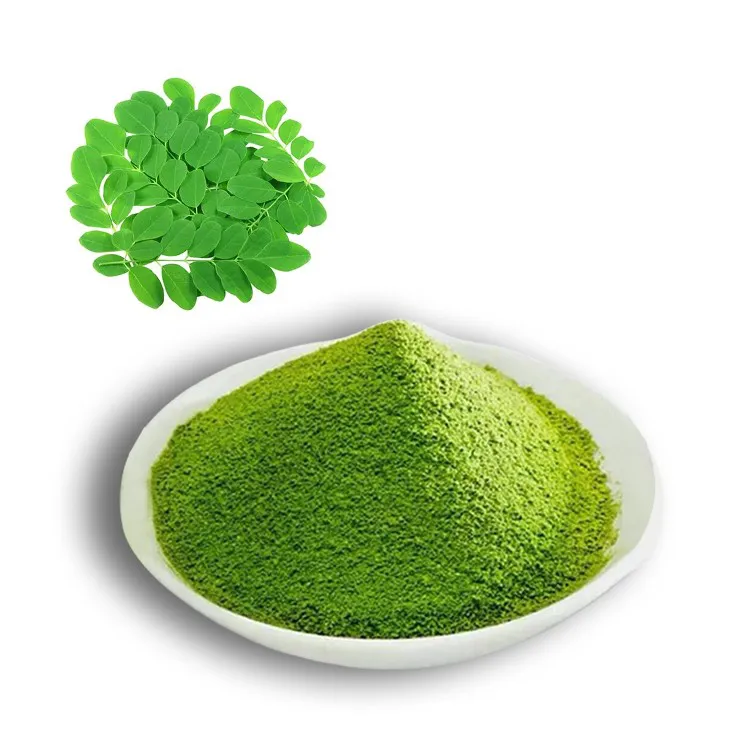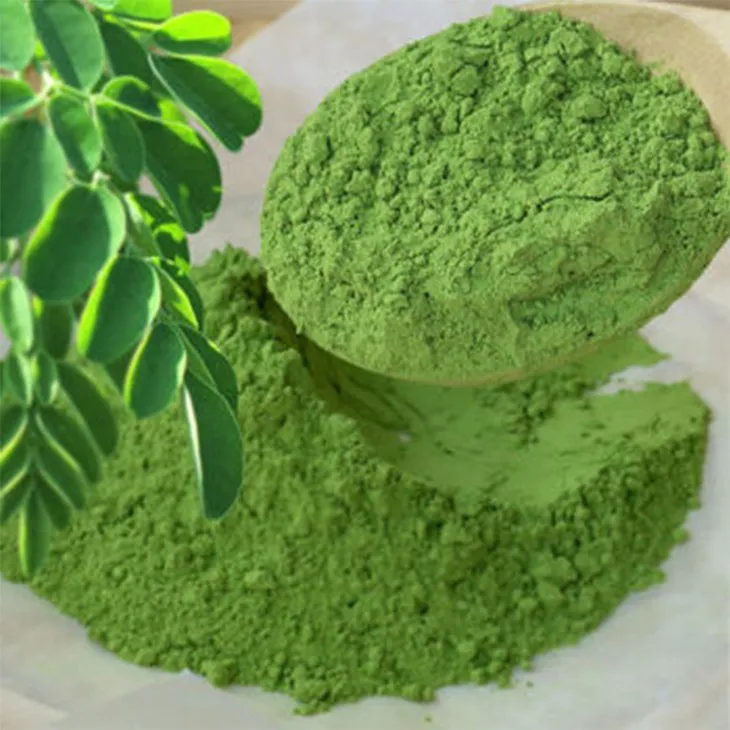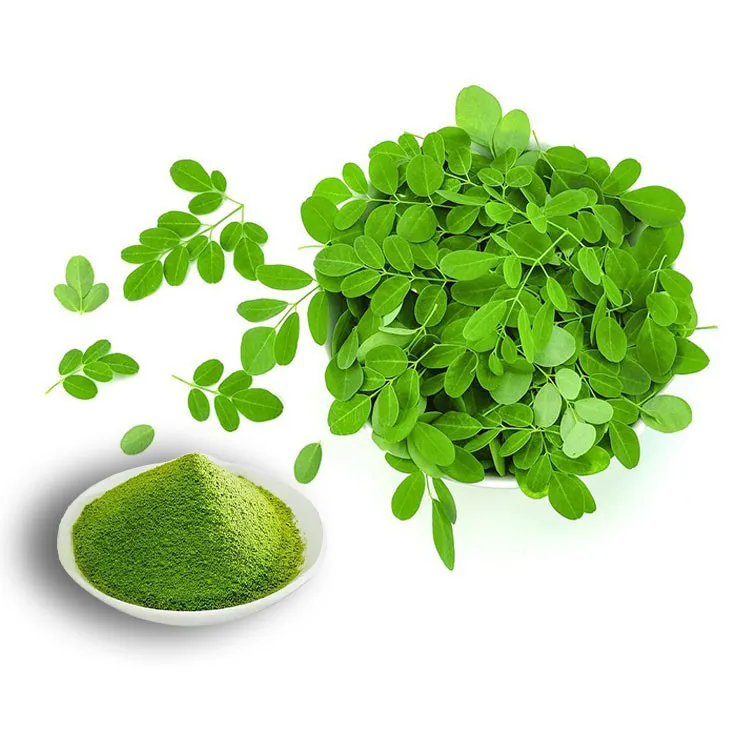- 0086-571-85302990
- sales@greenskybio.com
Understanding the Private Label of Moringa Powder: A Comprehensive Guide
2024-12-10

1. Introduction
Moringa powder has been emerging as a highly popular and sought - after product in recent years. It has captured the attention of health - conscious consumers, food enthusiasts, and the natural health industry alike. This all - in - one guide aims to provide a detailed understanding of Moringa powder, from its origin and production process to its unique properties and health benefits.

2. The Origin of Moringa
Moringa oleifera, the plant from which Moringa powder is derived, is native to parts of South Asia, including India, Pakistan, and Nepal. It has a long history of use in traditional medicine systems in these regions.
Over time, the cultivation of moringa has spread to other tropical and subtropical regions around the world. Countries in Africa, such as Kenya, Tanzania, and Senegal, have also become significant producers of moringa. The plant's ability to thrive in diverse climates and soil conditions has contributed to its widespread availability.

3. How Moringa Powder is Made
3.1 Harvesting
The first step in making moringa powder is the harvesting of the moringa leaves. Moringa trees are typically harvested when the leaves are young and tender, as they are believed to have the highest nutritional value at this stage. The leaves are carefully picked by hand or using small pruning tools to avoid damaging the tree.
3.2 Washing and Cleaning
Once harvested, the moringa leaves are thoroughly washed to remove any dirt, debris, or insects. This is a crucial step to ensure the purity and quality of the final product. After washing, the leaves are allowed to dry partially.
3.3 Drying
There are different methods of drying moringa leaves. One common method is sun - drying, where the leaves are spread out in a clean, well - ventilated area and exposed to the sun for several days. Another method is using a dehydrator, which can dry the leaves more quickly and at a controlled temperature. The drying process is important as it helps to preserve the nutrients in the leaves and prevent spoilage.
3.4 Grinding
After the leaves are completely dry, they are ground into a fine powder. This can be done using a high - speed blender, a mortar and pestle, or a specialized grinding machine. The resulting moringa powder is then ready for packaging.

4. Nutritional Composition of Moringa Powder
Moringa powder is a nutritional powerhouse. It is rich in vitamins, minerals, and other bioactive compounds.
- Vitamins: It contains vitamins such as vitamin A, vitamin C, vitamin E, and various B - vitamins. Vitamin A is important for vision, immune function, and skin health. Vitamin C is a powerful antioxidant that helps boost the immune system. Vitamin E also has antioxidant properties and is beneficial for cell protection.
- Minerals: Moringa powder is a good source of minerals like calcium, potassium, iron, and magnesium. Calcium is essential for strong bones and teeth, potassium helps regulate blood pressure, iron is crucial for oxygen transport in the blood, and magnesium is involved in many enzymatic reactions in the body.
- Protein: It contains a significant amount of protein, which makes it a valuable addition to vegetarian and vegan diets. The protein in moringa powder is complete, meaning it contains all the essential amino acids required by the human body.
- Antioxidants: Moringa powder is rich in antioxidants such as flavonoids, phenolic acids, and glucosinolates. These antioxidants help protect the body against oxidative stress, which is associated with various chronic diseases.
5. Health Benefits of Moringa Powder
Moringa powder has been associated with numerous health benefits, some of which are supported by scientific research.
- Immune System Support: The vitamins and antioxidants in moringa powder help strengthen the immune system. Vitamin C, in particular, plays a key role in immune function by stimulating the production of white blood cells.
- Anti - Inflammatory Properties: Moringa powder has been shown to have anti - inflammatory effects. The bioactive compounds in it can help reduce inflammation in the body, which is beneficial for conditions such as arthritis and other inflammatory diseases.
- Blood Sugar Regulation: Some studies suggest that moringa powder may help regulate blood sugar levels. It may improve insulin sensitivity and reduce the risk of developing type 2 diabetes.
- Heart Health: The potassium and other nutrients in moringa powder are beneficial for heart health. Potassium helps lower blood pressure, and the antioxidants may help reduce the risk of heart disease by preventing oxidative damage to the blood vessels.
- Digestive Health: Moringa powder can aid in digestion. It contains fiber that helps promote regular bowel movements and can also help soothe the digestive tract.
6. Moringa Powder in the Health - Promoting Substances Realm
When compared to other health - promoting substances, moringa powder has several unique features.
- Versatility: Moringa powder can be used in a variety of ways. It can be added to smoothies, juices, teas, or used in cooking and baking. This versatility makes it easy for consumers to incorporate it into their daily diets.
- Natural and Sustainable: Moringa is a natural plant - based product. Its cultivation is relatively sustainable as the moringa tree is fast - growing and can be grown in areas with limited resources. This makes it an environmentally friendly choice compared to some other health - promoting substances that may require more intensive farming or processing.
- Comprehensive Nutritional Profile: Unlike some single - nutrient supplements, moringa powder offers a wide range of vitamins, minerals, proteins, and antioxidants all in one. This makes it a more holistic option for those looking to improve their overall health.
7. Quality Control and Certification
When purchasing moringa powder, it is important to consider quality control and certification.
- Organic Certification: Look for moringa powder that is organically certified. This ensures that the product has been grown without the use of synthetic pesticides, fertilizers, or genetically modified organisms (GMOs).
- Good Manufacturing Practice (GMP) Certification: GMP - certified products are produced in facilities that follow strict manufacturing standards. This helps ensure the purity, quality, and safety of the moringa powder.
- Testing for Contaminants: Reputable moringa powder manufacturers will conduct tests for contaminants such as heavy metals, pesticides, and microbial organisms. This information should be available upon request or clearly stated on the product label.
8. How to Incorporate Moringa Powder into Your Diet
Moringa powder can be easily incorporated into your daily diet in a variety of ways.
- Smoothies: Add a teaspoon or two of moringa powder to your favorite smoothie recipe. It blends well with fruits like bananas, berries, and mangoes, as well as with yogurt or plant - based milks.
- Teas: Make a moringa tea by steeping a teaspoon of moringa powder in hot water for 5 - 10 minutes. You can add honey or lemon for flavor.
- Juices: Mix moringa powder into freshly squeezed juices, such as orange juice or green juices. This adds an extra nutritional boost.
- Cooking and Baking: Use moringa powder in cooking and baking. You can add it to soups, stews, muffins, or bread recipes. However, be aware that high - heat cooking may reduce some of the nutritional value of the moringa powder.
9. Conclusion
Moringa powder is a remarkable product with a rich history, diverse nutritional profile, and numerous health benefits. Understanding its origin, production process, and unique features can help consumers make informed decisions when choosing and using moringa powder. Whether you are looking to improve your immune system, support heart health, or simply add a nutritional boost to your diet, moringa powder can be a valuable addition. By ensuring quality control and incorporating it into your diet in creative ways, you can fully enjoy the benefits of this natural wonder.
FAQ:
What is Moringa powder?
Moringa powder is made from the dried leaves of the Moringa oleifera tree. It is rich in various nutrients such as vitamins (like vitamin A, C, and E), minerals (including calcium, potassium, and iron), and proteins. It has been used in traditional medicine in many regions and is now becoming popular globally as a health - promoting supplement.
Where does Moringa powder originate from?
The Moringa oleifera tree is native to parts of South Asia, including India, Pakistan, and Nepal. However, it is now also cultivated in many other tropical and subtropical regions around the world. These regions' suitable climates allow the tree to grow well, and the leaves can be harvested and processed into Moringa powder.
How is Moringa powder made?
First, the fresh leaves of the Moringa oleifera tree are carefully harvested. Then, they are washed thoroughly to remove any dirt or impurities. After that, the leaves are dried, either in the sun or using specialized drying equipment. Once the leaves are completely dried, they are ground into a fine powder. This powder can then be packaged for consumption or further processing.
What are the health benefits of Moringa powder?
Moringa powder has several potential health benefits. Its high nutrient content can help boost the immune system. The vitamins and minerals in it may contribute to better skin health, improved digestion, and increased energy levels. Additionally, it may have antioxidant properties, which can help protect the body's cells from damage caused by free radicals. Some studies also suggest that it may have anti - inflammatory effects.
How can one use Moringa powder?
Moringa powder can be used in a variety of ways. It can be added to smoothies, juices, or water for a quick and easy nutrient boost. It can also be used in cooking and baking, for example, added to soups, stews, or muffin batters. Some people even sprinkle it on top of salads or other dishes for an extra nutritional kick.
Related literature
- The Nutritional and Therapeutic Potential of Moringa oleifera: A Review"
- "Moringa oleifera: A Multifunctional Tree with Promising Health Benefits"
- "Moringa oleifera Leaf Powder: A Review of Its Nutritional and Medicinal Properties"
- ▶ Hesperidin
- ▶ citrus bioflavonoids
- ▶ plant extract
- ▶ lycopene
- ▶ Diosmin
- ▶ Grape seed extract
- ▶ Sea buckthorn Juice Powder
- ▶ Beetroot powder
- ▶ Hops Extract
- ▶ Artichoke Extract
- ▶ Reishi mushroom extract
- ▶ Astaxanthin
- ▶ Green Tea Extract
- ▶ Curcumin Extract
- ▶ Horse Chestnut Extract
- ▶ Other Problems
- ▶ Boswellia Serrata Extract
- ▶ Resveratrol Extract
- ▶ Marigold Extract
- ▶ Grape Leaf Extract
- ▶ blog3
- ▶ blog4
- ▶ blog5
-
Pure 85% Tomentil Extract.
2024-12-10
-
Maitake Mushroom Extract
2024-12-10
-
Pueraria Lobata Extract
2024-12-10
-
Tongkat Ali Extract Powder
2024-12-10
-
Bilberry Extract
2024-12-10
-
Beetroot juice Powder
2024-12-10
-
Yohimbine Bark Extract
2024-12-10
-
Red Wine Extract
2024-12-10
-
Hedyotis Diffusa Extract
2024-12-10
-
Hericium erinaceus extract powder
2024-12-10
-
Curcuma Longa Extract/Turmeric extract
2024-12-10





















